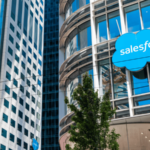 image-inserted">
image-inserted">Shocking news this week.
A U.S. court found Google, that tiny little Northern California company that provides search, advertising, and other online services, to be a monopoly. Yes, a monopoly.
If you read mainstream media coverage of the ruling, you might think a giant space alien had just been killed.
Headlines scream superlatives, such as How Google’s Huge Defeat Could Change How You Search the Internet and 6 Ways the Google Ruling Could Change the Internet.
The monster is dead.
But is it really?
Many articles compare this ruling to the anti-trust ruling against Microsoft in 2000 when it was accused of defaulting to its web browser — Microsoft Explorer — in computers’ operating systems. Is that a good comparison?
We didn’t know, so we turned to CMI’s chief strategy advisor, Robert Rose, for his take. Watch or read on:
Is Google decision like Microsoft case in 2000?
Well, the comparison between the Microsoft and Google cases is valid, but not necessarily for the most obvious reason.
Reporters and analysts alike say the declaration that Google’s grip on the search market is illegal deals a significant blow to the behemoth brand. They say it signals a potential turning point in the ongoing regulatory clampdown on Big Tech. They say it paves the way for search engine rivals who have struggled for a slice of the highly lucrative online search pie.
These observers also compare the case to the 2000 Microsoft ruling on its web browser integration into operating systems. And similarities do exist. This ruling focuses on the embedding of Google into devices and platforms. Google pays Apple somewhere north of $20 billion every year to be the default search engine for Apple devices. Google also is obviously the default on Android phones.
However, users can change the default search engine on Apple and Android devices to whatever they prefer. Now, I’m getting into the details, just as you might suspect Microsoft did and Google likely will in their appeals.
What happens from here? It’s anybody’s guess. The certain appeal will take time, and in that time, federal elections will be held, and other related news will happen.
Microsoft didn’t break apart from its computer and operating systems businesses right away. A year after the original ruling, it won the appeal. Ultimately, 17 months later, it settled with the government, which said, “OK, we don’t need you to break apart the businesses, but we do need you to allow more competition on the platform. Open up your systems.” And so, Microsoft did.
What changed after the Microsoft case? Other than the launch of a few competitors, including Firefox, and the eventual replacement of Microsoft Explorer, not much, other than Microsoft getting stronger and stronger in other areas.
Marketers should stay in your busy lanes
What should marketers take away from the Google case? Not a lot.
You have enough to do in marketing, advertising, search, and content without worrying about what’s going on with Google. The headlines talking about the ripple effects on other companies like Apple, Amazon, and Meta are probably right, but those ripples are likely years away.
For consumers, the Google decision is mostly good news. In the long run, it probably means more choices, better choices, and more competition. Watch what Apple does now. Does it build its own web search or purchase somebody else’s? Does it even matter?
These big business tectonic shifts are like real earthquakes. They are easy to feel and see — and scary when they happen — but they are incredibly hard to predict. Just because a big one happens today doesn’t mean anything changes tomorrow. The next big one might come next week or 100 years from now.
HANDPICKED RELATED CONTENT:
Cover image by Joseph Kalinowski/Content Marketing Institute

